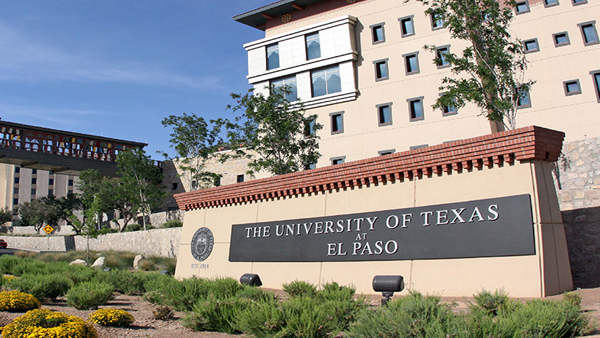- South Texas Students Meet Accordion Music Icons Los Tigres Del Norte In Edinburg Thanks To Khs America/Hohner Alianza Académica Initiative
- Fragile Planet Offers a Nighttime Wildlife Experience
- Falcons Soccer Off & Running
- Cameron County Receives Funds to Improve Two Parks
- Falcons Complete First Half of 32-6A
- School District to Help out Victims of California Wildfires
- Sand Castle Days Continued Despite Unexpected Weather
- Ready for District
- Discussion of Garbage Dumpster Rates, Agreements Between State & City on Highway Regulations, and More
- 31st Annual Shrimp Cook-Off is Right Around the Corner
Report: UT System Grads Get Better Jobs, Make More Money
- Updated: July 28, 2017

The University of Texas at El Paso in one of nine undergraduate campuses in the University of Texas System. Photo: UT-El Paso
by Mark Richardson
AUSTIN, Texas – Graduates from University of Texas System schools, on average, do better in their careers than students with degrees from other colleges – not just in Texas but across the nation, according to a joint study out today from Georgetown University and the University of Texas.
The study also found that students’ choice of major affects both their ability to get a job and future earnings, and said this especially is true for students from low-income families.
Lead report author Anthony Carnevale, who heads the Georgetown Center on Education and the Workforce, said attending a top-tier school in Texas gives students a leg up on their career track.
“While it is true that the more education you get, the better you do – that’s kind of ‘Rule Number 1’ in the college and jobs game – it’s also true that what you make depends on what you take,” he said. “Just going is not the whole game.”
Carnevale said the study found that the UT System’s selective-admissions colleges spend more than double the amount of money per student on academic and instructional support than do open-admissions schools in Texas. UT System officials say they plan to use the study results to provide better academic and career guidance for students.
Carnevale said the study found that a UT System degree increases the chance of finding a job upon graduation, but a student’s course of study also affects his or her starting salary.
“So, if you major in STEM (Science, Technology, Engineering and Math), business or health care, you make money and you’re likely to get a job,” he said. “If you major in education, you’re very likely to get a job but you won’t make much money.”
The study also found that economically disadvantaged students who graduate from UT System schools do considerably better than students attending other colleges on Pell grants.
“It looks like the penalty is minimized,” Carnevale said. “That is, disadvantaged students who get into the UT system, especially at Austin and Dallas, do much better than other Pell grant students outside the UT system.”
Other findings in the study included a significant wage gap between white and Latino graduates based on the number of Latinos who take jobs outside their degree field, and that women initially out-earn male graduates with similar jobs, but eventually their salaries fall behind men.
The report is online at georgetown.edu.
